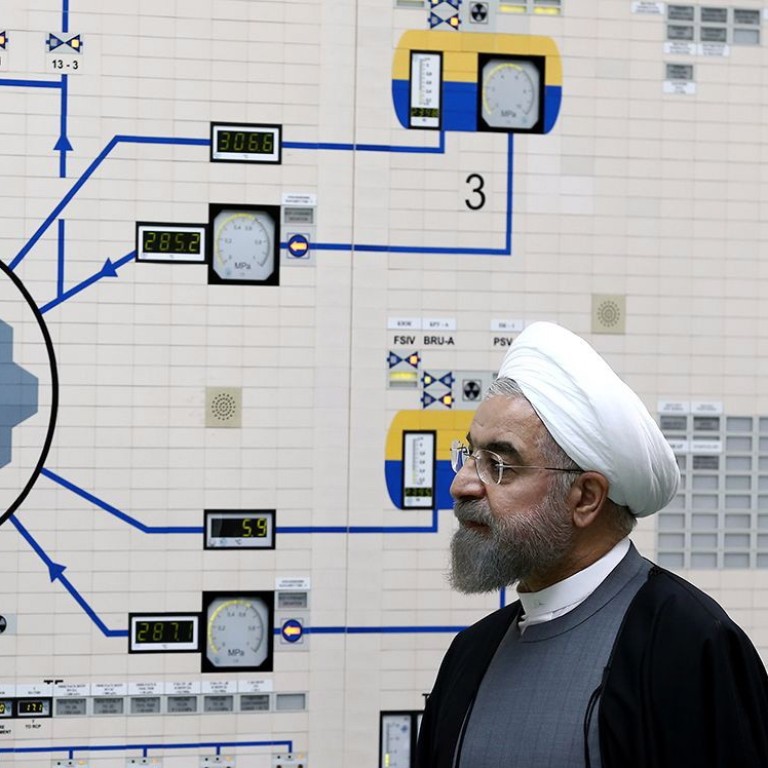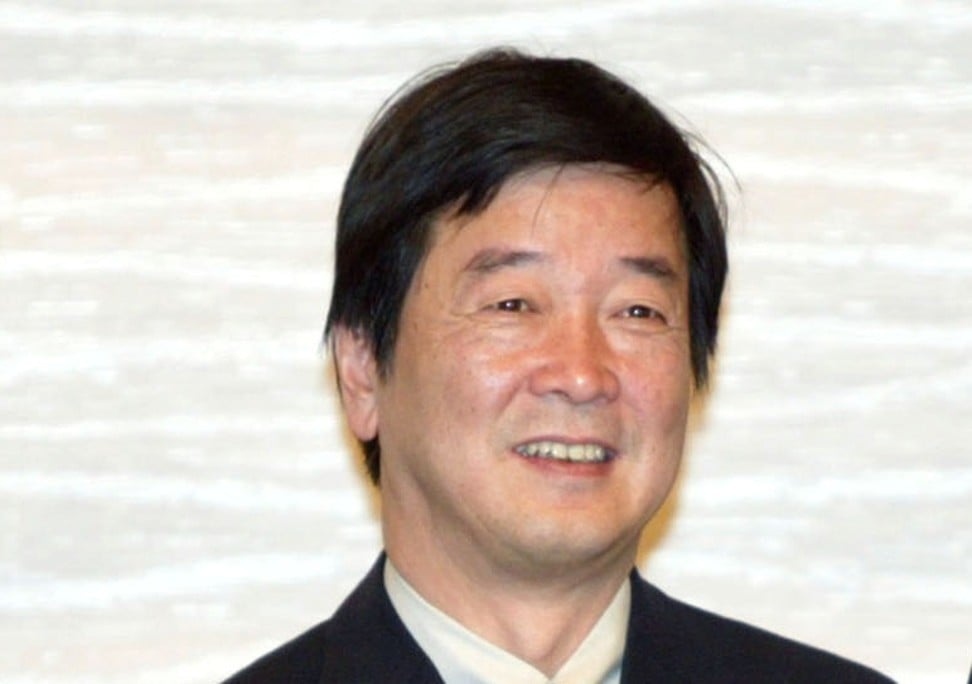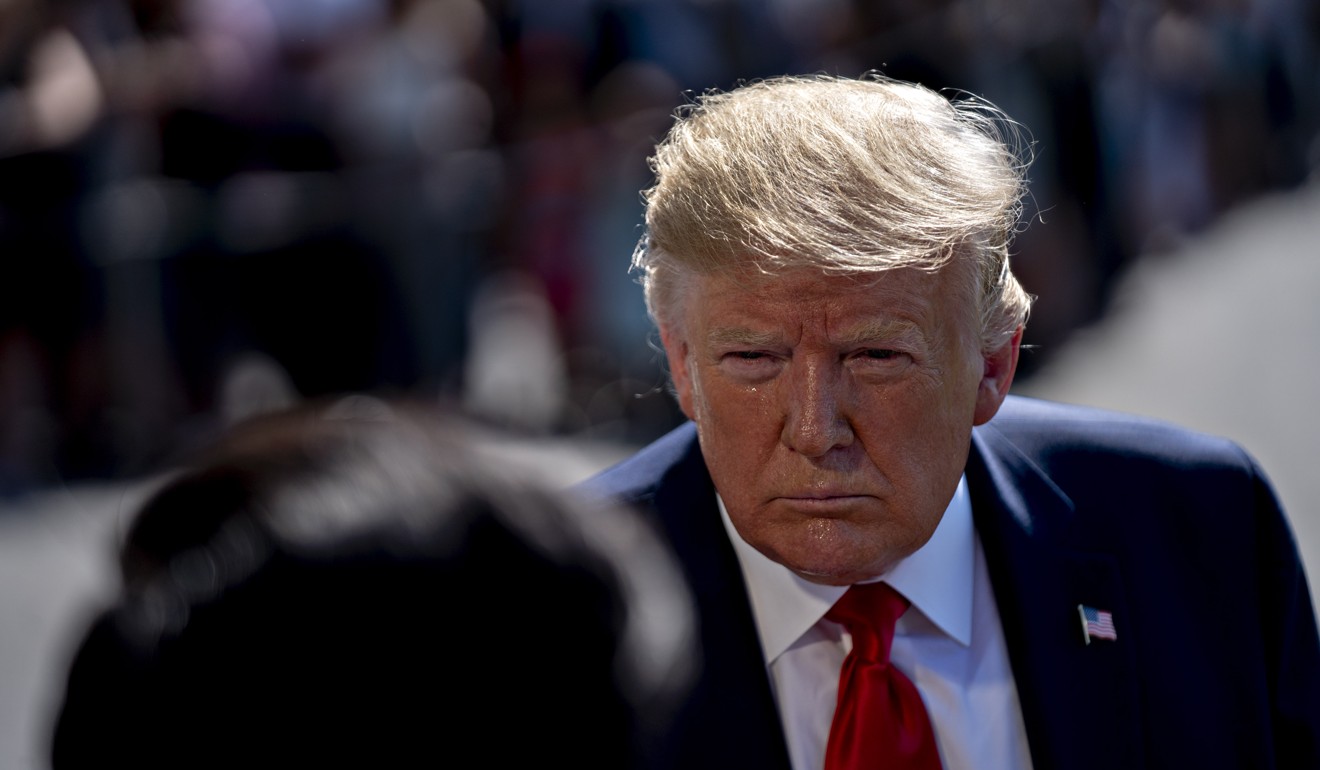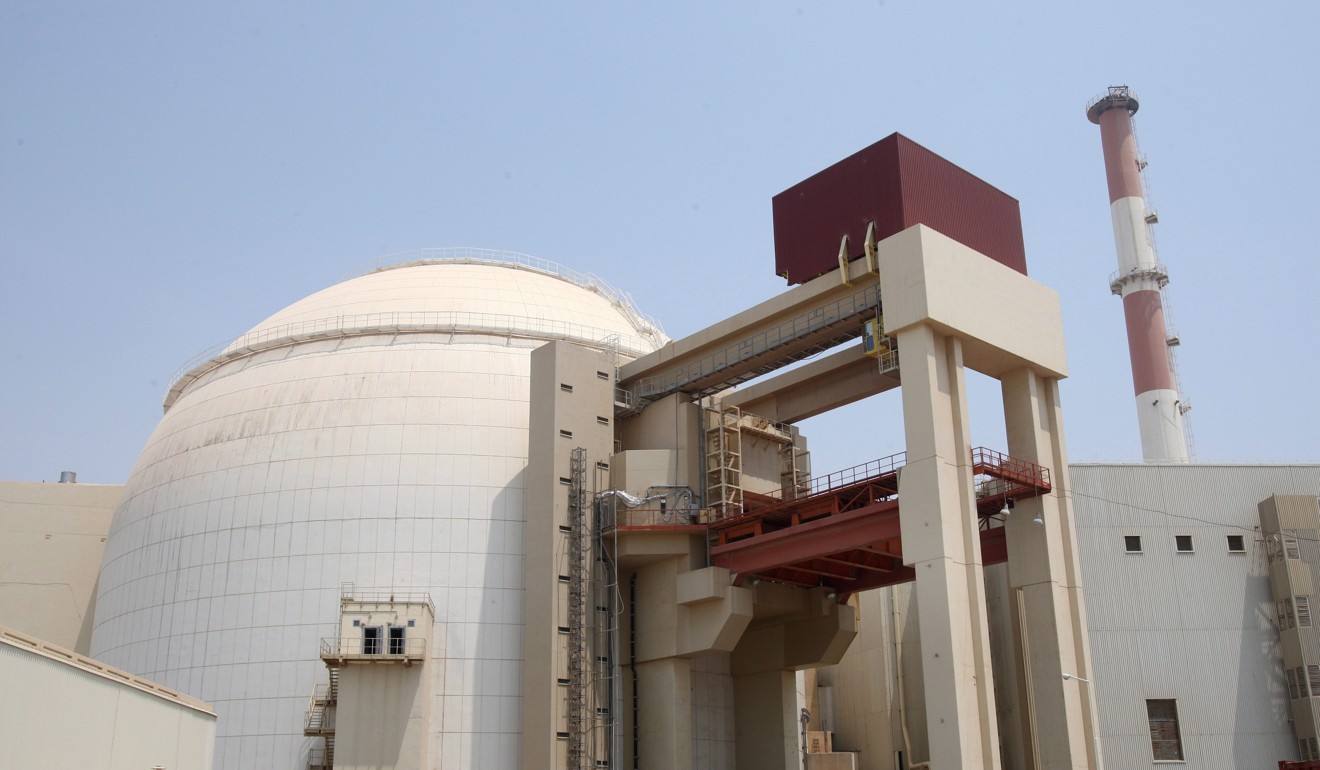
Asia fears ‘second cold war’ as Donald Trump pushes Iran into Chinese arms
- Washington’s ‘maximum pressure’ campaign to limit Iran’s nuclear initiatives is prompting Tehran to pivot to Beijing and Moscow, experts say
- Meanwhile, the US-China trade war is forcing Asian countries to pick sides
Worsening US-Iran tensions are raising fears among Asian countries of Tehran’s pivot to China and Russia, potentially sparking a second cold war, experts at a conference in Singapore said on Tuesday.
Hitoshi Tanaka, Japan’s former deputy minister for foreign affairs, said Washington’s sanctions on Iran would force it to “seek alternative measures to survive”.
The Trump administration has unleashed a campaign of “maximum pressure” against Iran this year, to force it to limit its nuclear and military initiatives.
“Clearly everyone expects Iran to move to China and Russia,” said Tanaka, the chairman of the Institute for International Strategy at the Japan Research Institute.

“This will create a [very] divisive global government. We are talking about [how] there may be a second cold war.”
He was speaking at a conference on US-Iran ties organised jointly by the Middle East Institute and the National University of Singapore and held at the Orchard Hotel.
Former US Secretary of State Richard Armitage and India’s former minister of state for foreign affairs MJ Akbar also spoke at the day-long event.
China has criticised the “unilateral sanctions” and continued to buy oil from Tehran, thus limiting Trump’s bid to squeeze Iranian exports.

The US Energy Information Administration says 21 million barrels of crude and refined oil are carried through the strait each day, according to 2018 figures, and this is worth about US$1.17 billion at current prices.
If Xi can matchmake Trump and Korea’s Kim, why not Iran’s Rowhani too?
Any major disruption to tanker traffic could choke global oil supply and result in price hikes.

After the 2015 nuclear deal was struck, many international companies, including those from China, Russia and Europe, had the confidence to set up businesses in both the US and Iran.
“Now, suddenly, the Trump administration has again sanctioned Iran. Now, those companies have to make a decision again, either to leave Iran or the US,” said Pan, who is also a professor at the Shanghai Academy of Social Sciences.
Trump to disappoint Iran hawks with more nuclear waivers
Tanaka said given the different positions the US and China had on Iran, smaller countries in Asia would also face the economic impact of being forced to choose.
Energy consultant Tilak Doshi brought up the issue of a price shock, in the event of disruptions to tanker traffic.
Asian economies have already felt the squeeze, said Pan, who added that if things blew out of proportion, there would be an “energy crisis”.
Added Pan: “Nobody really knows what would happen because we don’t think Iran and US would [wage] war… but there will be a crisis. People will worry about what’s happening and markets will fall.”
Tanaka said many countries had consulted Iran, and that there “was room” for them to convince Tehran out of the deadlock.
Asia faces a devil’s bargain over US sanctions on Iran’s oil
It was a point echoed by Armitage in his keynote address.
“My personal view that I’ve indicated to the government … is that Japan should participate in protection of their ships in the Gulf, but not as part of the coalition.
“We need to value Japan’s relationship with Iran and value Mr Abe’s possibilities of speaking to the leadership of Iran. But any nation has the responsibility to protect their own ships.”

